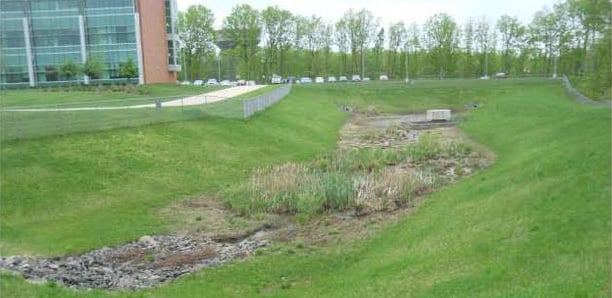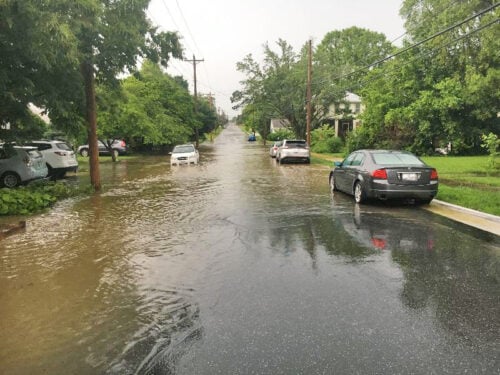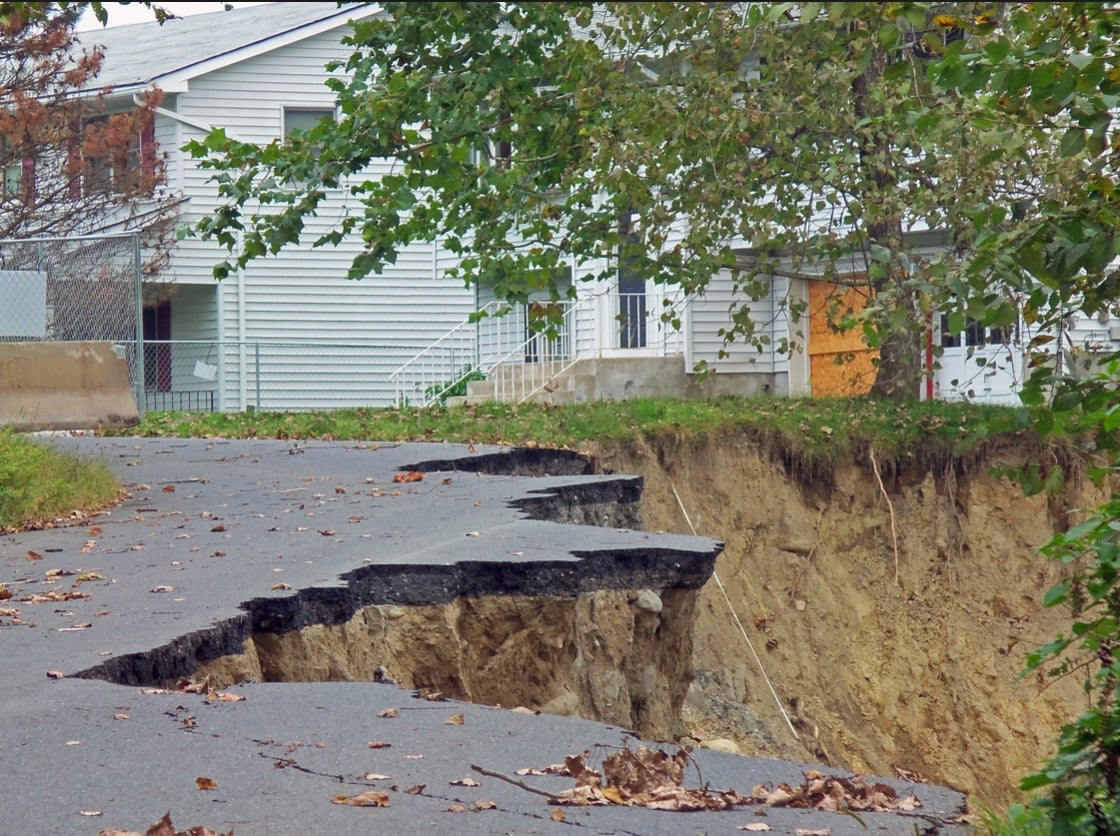
Our MS4 Program
The objective of the Municipal Separate Storm Sewer System (MS4) program is to protect our local waterways by managing stormwater pollutants.
Our MS4 program is required and part of the Virginia Pollutant Discharge Elimination System. The program is regulated by the Virginia Department of Environmental Quality. The MS4 is a regulatory framework established by EPA, under the authority of the Clean Water Act.
Learn more on the U.S. Environmental Protection Agency's National Pollutant Discharge Elimination System webpage.
The MS4 program has been created to address pollutants that are discharged via stormwater systems/runoff into local water bodies.
These systems are separate from wastewater treatment/traditional sewer systems. Stormwater flow does not get treated as does traditional sewage. This makes the monitoring, education, and regulation of stormwater systems throughout Prince William County Public Schools that much more important!
The MS4 program is designed to address unique challenges associated with ever-increasing urban and suburban areas, where stormwater picks up various pollutants from many sources, including lawns, playing fields, roadways and sidewalks, parking lots, and general debris and litter streams. These pollutants are discharged directly into local waterways unless treated in some way using best management practices.
- Small MS4 dischargers: Prince William County Public Schools is a small discharger (DEQ Permit Letter November 2023) and is required to operate under the DEQ General Permit, which has standardized requirements that must be met. The new Small MS4 General Permit (9VAC25-890-40) has been issued for November 1, 2023-October 31, 2028.
- Larger dischargers: Prince William County is a larger discharger and must develop individual permits that are written and implemented to control pollutant discharges to the maximum extent practicable in a manner that protects water quality in nearby waterways of all types, including the Chesapeake Bay.
Under the general permit, small MS4s must develop, implement, and enforce an MS4 Program Plan that includes the following six minimum control measures:
- Public education and outreach on stormwater impacts
- Public involvement and participation
- Illicit discharge detection and elimination
- Construction site stormwater runoff control
- Post-construction stormwater management in new development and redevelopment
- Pollution prevention/good housekeeping for municipal operations
View the 2024 MS4 Program Plan (PDF)
If you'd like to comment on the program plan, please submit your comment to the PWCS MS4 Project Manager at [email protected].
What is Stormwater?
Did you know that rain, in all of its forms, causes billions of dollars in damage in the U.S. every year?
And every time it rains, all of those millions of gallons of water that tumble onto the ground need to go somewhere – and because of alarming increases in impervious surfaces (surfaces where the water cannot infiltrate into soils) not all of it soaks into the soil below our feet as it should naturally, but instead runs off into local waterways.
All that water that rolls off of your roof, through your yard, and over the street is called stormwater runoff. This runoff is incredibly good at picking up whatever it comes into contact with as it travels to local waterways, and eventually to the Chesapeake Bay. The nutrients that get picked up as it travels can actually cause significant damage to the surrounding ecosystem. The pollutants include:
- Sediment
- Oil, grease, and toxic chemicals from motor vehicles
- Pesticides and nutrients from lawns and gardens
- Viruses, bacteria, and nutrients from pet waste and failing septic systems
- Road salts
- Heavy metals from roof shingles, motor vehicles, and other sources
- Thermal pollution from dark impervious surfaces such as streets and rooftops
Polluted runoff is one of the greatest threats to clean water in the U.S.!
Check out our after the storm (PDF) publication that you can share with others. It showcases some things you can do in various situations to lessen the effects of stormwater runoff.
Documents
- 2022-23 MS4 Program Plan
- Bull Run, Little Bull Run, Broad Run and Occoquan River Bacteria TMDL Action Plan 2022
- Neabsco Creek Bacteria TMDL Action Plan 2022
- Municipal Separate Storm Sewer System Annual Report for 2021-22
- PWCS Tributaries of the Potomac Bacteria TMDL Action Plan 2022
- PWCS Potomac and Anacostia Rivers PCB TMDL Action Plan 2022
- Bull Run Penthic TMDL Action Plan 2022

Example of stormwater management urban flooding.

Example of damage caused by stormwater.
Please notify/report any suspicious activity regarding the storm drains/waterways to Environmental. If it is an emergency, call 703-791-8805 (PWCS Security Dispatch) or 911, if emergency personnel are needed immediately.
